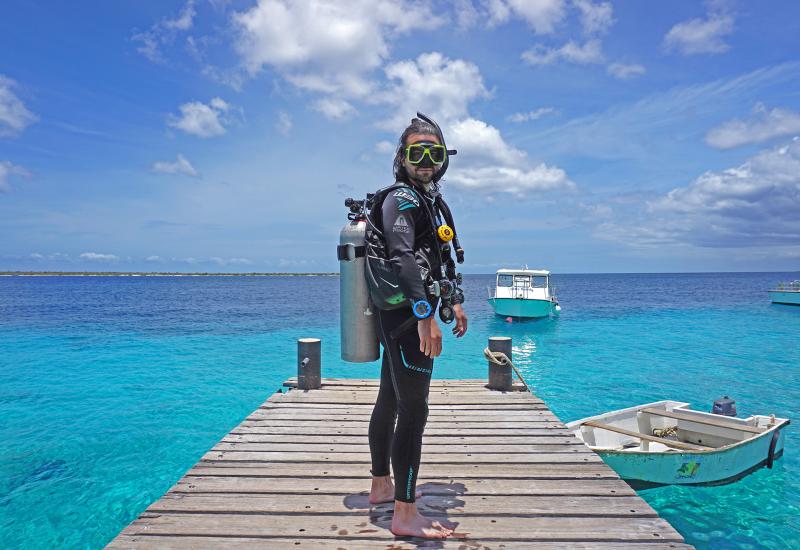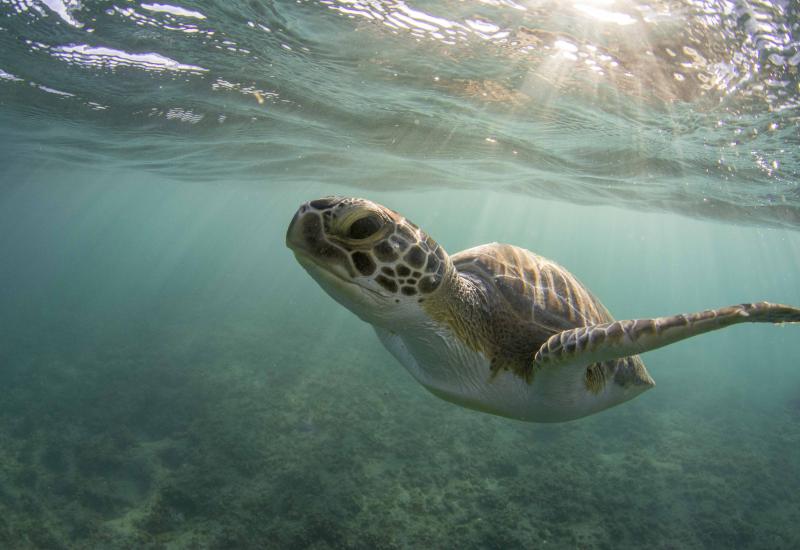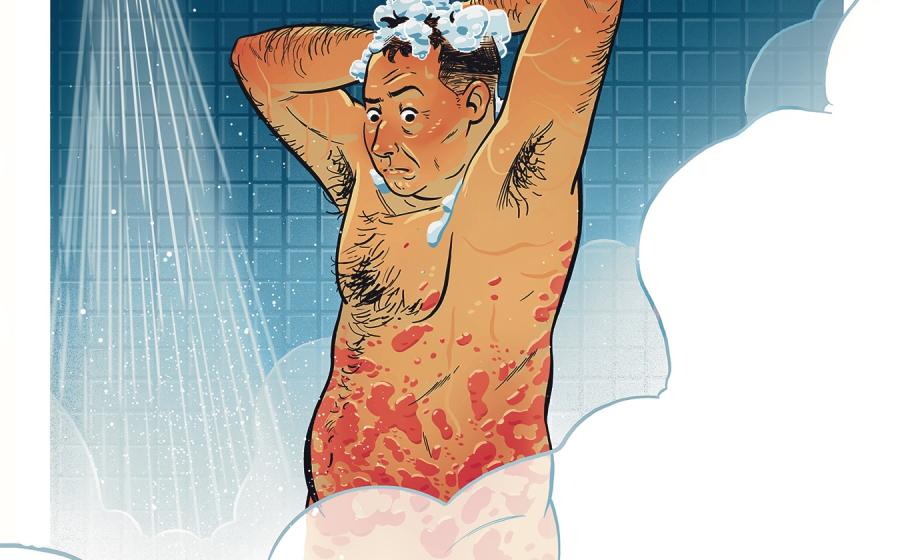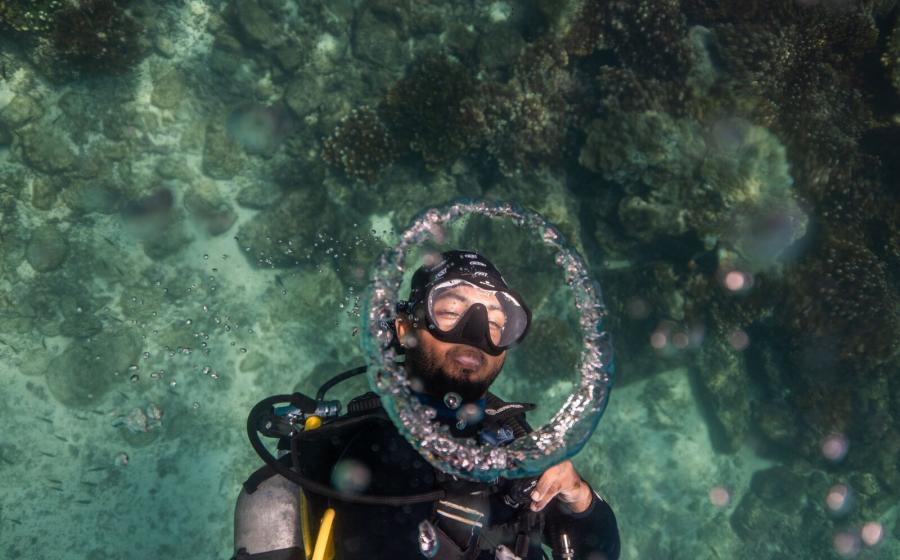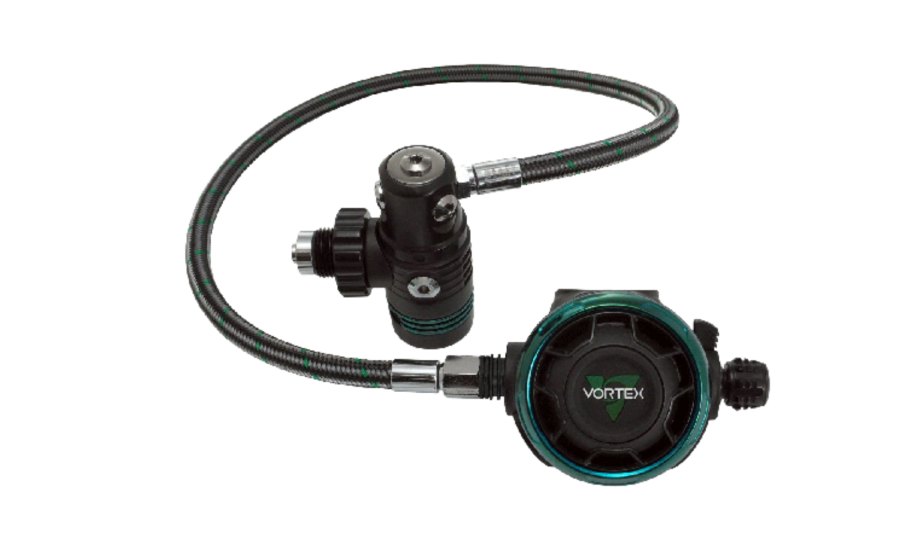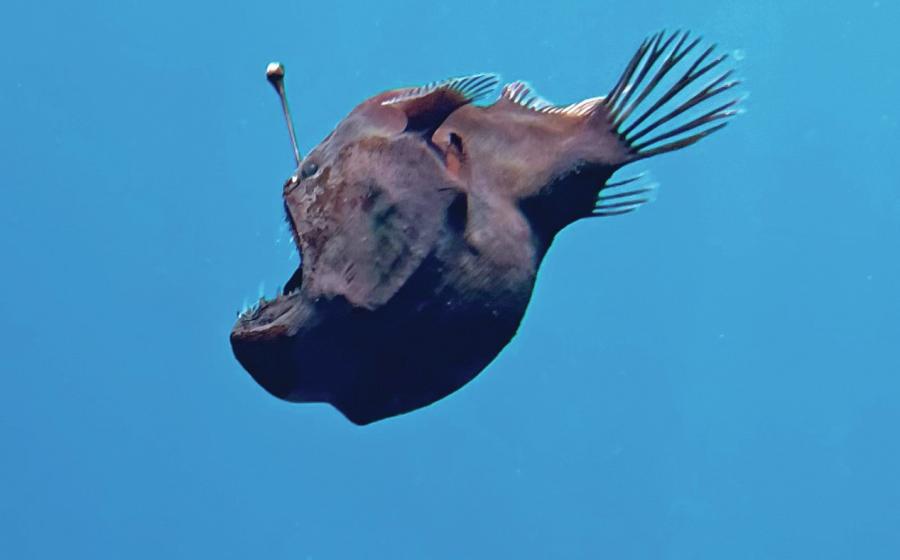How to Pick a Scuba Diving Instructor
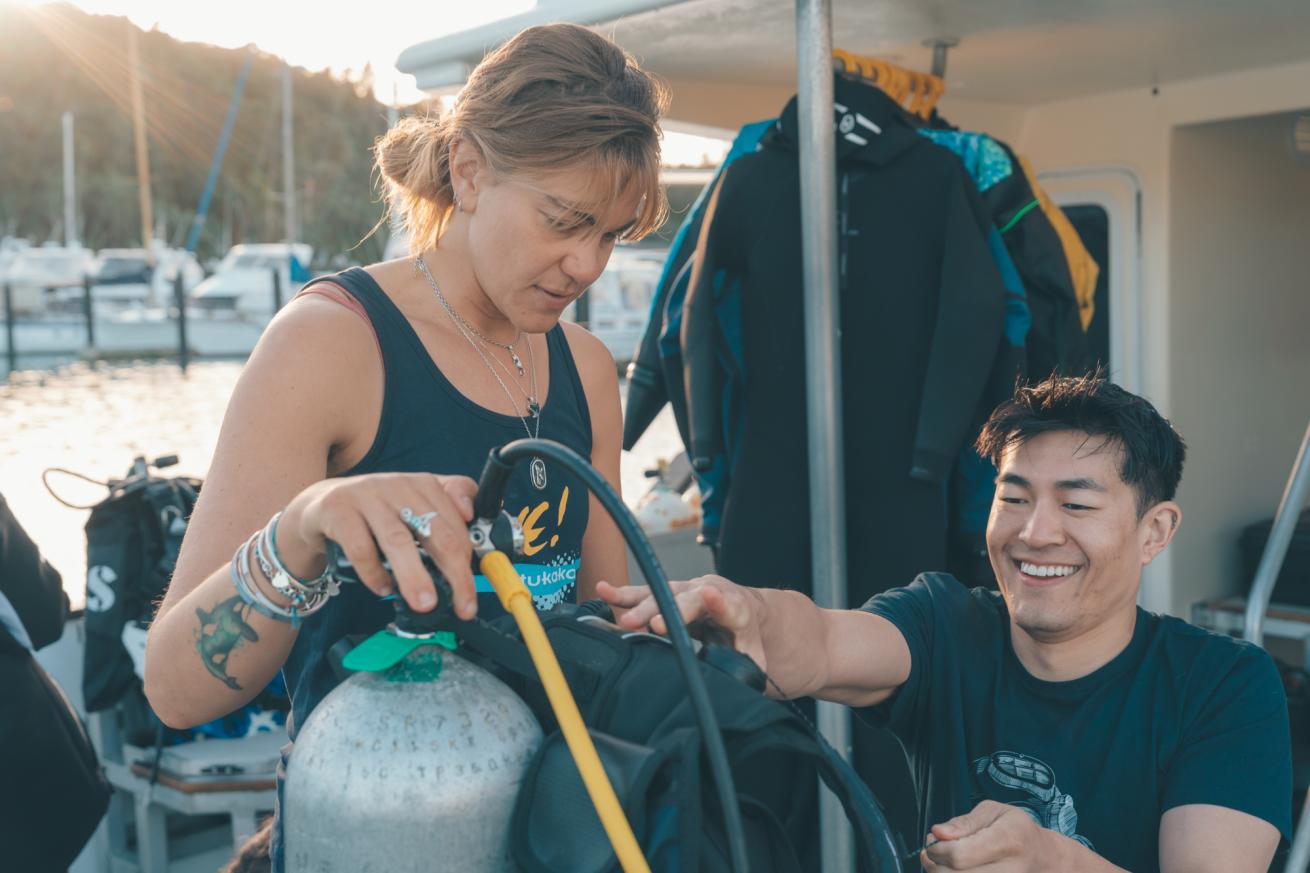
How exciting! You’ve decided to embark on your first underwater adventure. Or maybe it’s time to level up your certifications.
Whether brand new to diving or looking to obtain a new set of skills, the first step is to understand how to pick a dive instructor who will guide you through this transformative journey.
Selecting the right instructor is crucial for mastering the technical skills required for safe diving and for enhancing your experience exploring our big blue planet.
A dive instructor does more than teach you how to breathe underwater; they are your mentor, teammate, coach, safety officer and guide to the underwater world. Choosing an instructor that you “click” with - one suited to your learning style, personal needs and values - is as important as selecting the right scuba gear.
We’ll explore what makes a dive instructor exceptional and offer tips to ensure you make the best choice for your scuba education.
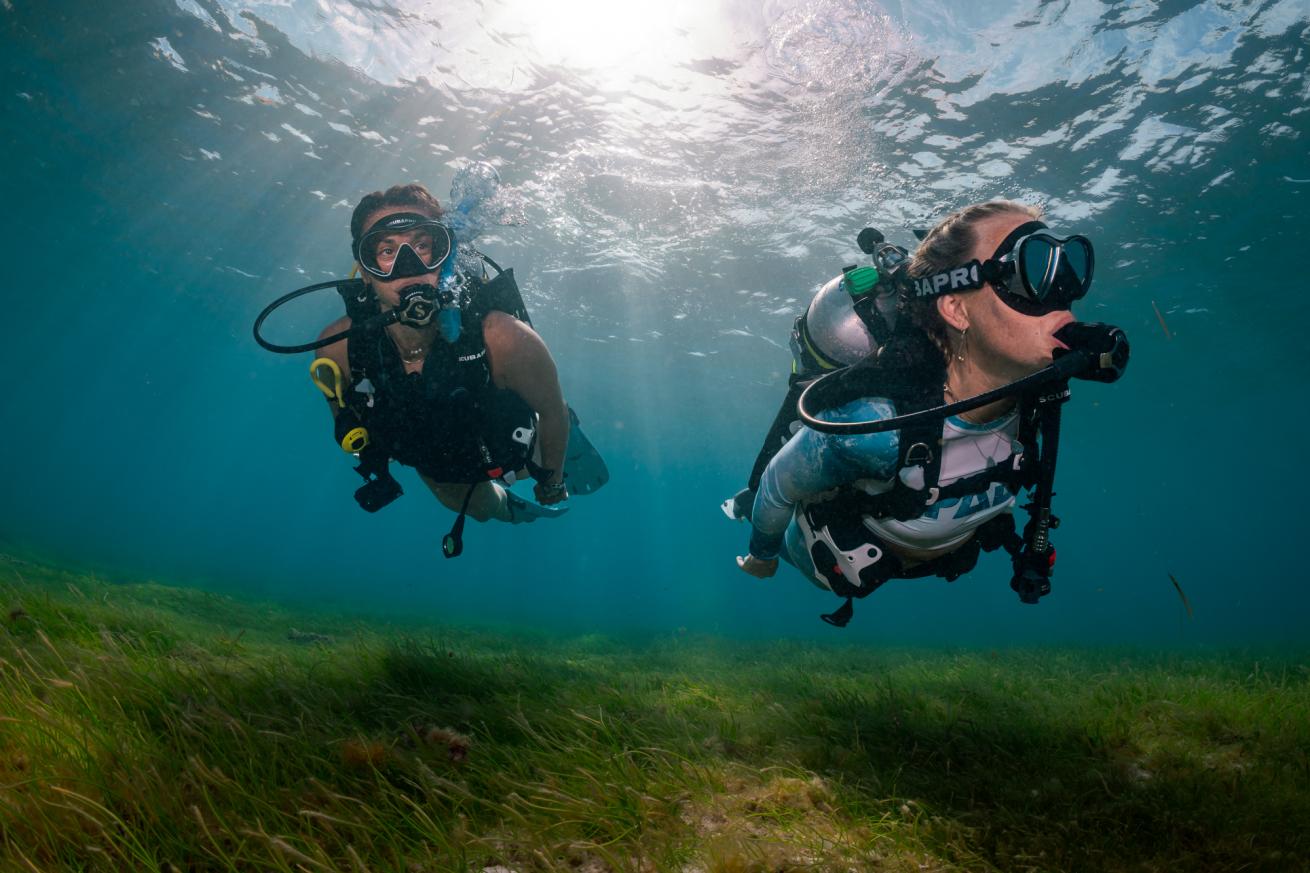
PADI/Jay Clue
Scuba Instructor Qualities to Consider
Dive Instructors play a multifaceted role in your scuba diving journey. They are more than just a teacher; they are pivotal in ensuring your safety, confidence and competence in the water.
Let’s explore the key roles and qualities that define an exceptional dive instructor.
Educator and Mentor
First and foremost, a dive instructor is an educator. Their primary responsibility is to share the knowledge and skills necessary to dive safely and responsibly. This includes teaching diving theory, demonstrating techniques and ensuring you can apply what you've learned in practical, real-world diving situations.
An exceptional instructor also serves as a mentor. They inspire passion for the sport, encourage continuous learning and help new divers overcome challenges, whether they're related to skills, fears or the environment.
Communication and Interpersonal Skills
Effective communication is a hallmark of a good dive instructor. They must be able to clearly explain concepts and procedures, answer questions thoroughly and adjust their teaching methods to suit different learning styles and paces.
Furthermore, strong interpersonal skills are crucial as they help build trust and rapport with students. An instructor who can connect with their students on a personal level is more likely to instill confidence and motivate them through the learning process.
Under the leadership of the right instructor, you will feel able to ask even the “silliest” question (although there’s no such thing in our opinion!). Dive instructors must create a culture where you belong, feel safe to contribute and make mistakes, encourage questions and contributions and challenge the learner when appropriate.
Patience and Adaptability
Every student is unique, and learning to dive can be a daunting experience for many. The best instructors exhibit patience and understanding, giving students the time they need to become comfortable and proficient with their skills.
Adaptability is critical to any good teacher, but in diving it is critical, as conditions often change and planned activities must be adjusted. A great instructor can think on their feet and modify lessons to accommodate different conditions or student needs without compromising safety or educational value.
Safety Officer
Safety is paramount in scuba diving. An exemplary dive instructor prioritizes safety above all else. This role involves more than adhering to standard safety protocols; it requires an instructor to be vigilant, proactive, and prepared to handle emergencies if necessary.
An exceptional diving instructor will continuously update their own training, be adept in rescue techniques and first aid, as well as ensure that all safety equipment is up to standard and appropriately used.
Passion for Diving and Teaching
Look for someone who is passionate about both diving and teaching. This passion is infectious and can greatly enhance the student’s learning experience.
Instructors who love what they do will go the extra mile to ensure that you fall in love with diving as much as they have.
Related Reading: Finning Techniques All Divers Should Know
Be part of the club! Keep up to date with the latest in diving and underwater adventure. Join PADI Club today for access to exclusive events, dive meet ups and a subscription to Scuba Diving magazine.
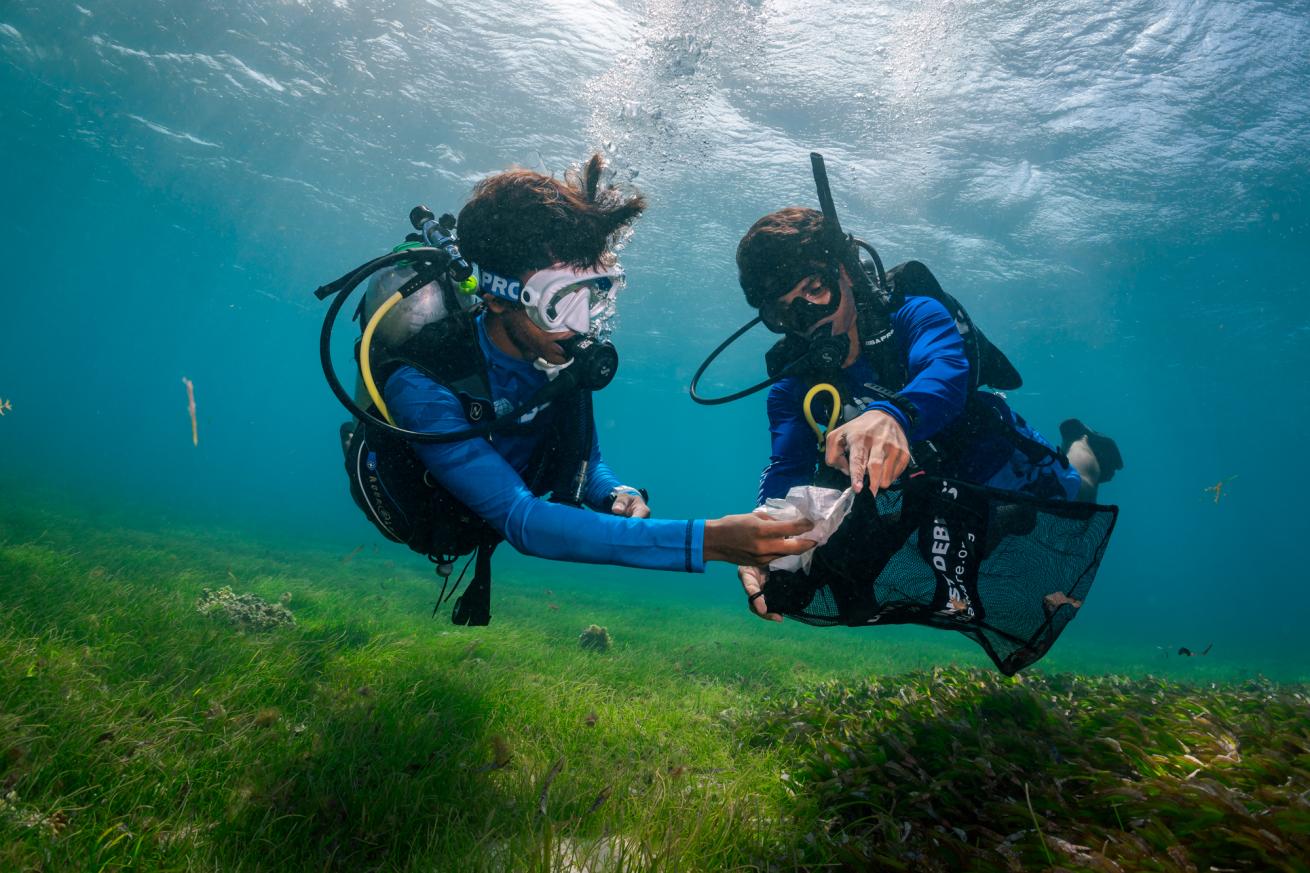
PADI/Jay ClueWhen choosing a dive instructor and dive center, one thing to consider is their commitment to environmental protection.
Eco-Consciousness and Environmental Stewardship
As environmental sustainability becomes increasingly urgent, choosing a dive instructor who advocates marine conservation adds a significant layer of value to your diving education.
PADI Torchbearers, for example, are members of a community of divers, dive professionals and environmental advocates dedicated to ocean protection. These instructors don’t just teach diving; they are committed to nurturing eco-conscious divers who understand the impact of their interactions with the marine environment.
An eco-conscious instructor emphasizes best practices such as buoyancy control to avoid damage to sensitive coral reefs, responsible interaction with marine wildlife and best practices to reduce the ecological footprint of diving activities.
Look for an individual who incorporates environmental principles into their teaching, perhaps through their participation in underwater cleanups or citizen science projects.
An instructor who demonstrates a commitment to preserving the underwater world helps new divers make responsible and sustainable choices, enhancing the health of marine ecosystems for future generations.
Understand Your Learning Preferences
Choosing the right dive instructor is not just about their qualifications or teaching style—it’s equally about understanding how you best absorb and process new information.
Take the time to assess your personal learning preferences to ensure you find an instructor who matches your needs.
Self-Assessment of Learning Style
To start, consider what has worked well for you in past learning situations. Reflect on these questions to determine your preferred learning style:
Pace of Learning Do you prefer to take your time with new information, ensuring you understand each concept thoroughly before moving on, or do you like to move quickly to keep lessons dynamic and engaging?
Learning Environment Are you more comfortable learning in a structured classroom setting where you can ask questions and interact directly with the instructor and other students, or do you prefer studying independently at your own pace, perhaps with digital resources or self-study kits?
Interaction Level Do you find you learn better in a collaborative environment with group activities and peer interaction, or do you excel when you can work through materials and problems on your own?
Related Reading: Your First Set of Scuba Gear: A Buyer's Guide

PADI/Daniel Tayenaka
Matching Learning Style With Instructional Style
Once you’ve identified your learning preferences, it’s crucial to find a dive instructor and a course that aligns with these preferences. For example:
If you prefer a slower pace, look for an instructor who is patient and flexible, possibly one who offers customized one-on-one sessions.
If you enjoy self-study, ensure that your dive school offers comprehensive digital resources including e-learning versions of course materials and that it supports independent learning alongside practical sessions.
If you thrive in interactive settings, choose a dive school that emphasizes group learning and has a strong community focus, offering group dives and social events.
If practical skills are your focus, seek courses that offer extensive in-water training and hands-on learning experiences from the start.
Where to Look and Questions to Ask
So, now you know what you’re looking for, it’s time to find out if there’s an exceptional dive instructor that matches your learning preferences working at your local dive shop!
Step 1: Find the dive centers in your local area/destination
Finding PADI dive centers couldn’t be easier. Simply search on PADI’s dive shop locator map and you’ll be presented with a list of shops with all their details.
Step 2: Shortlist your favorites and get in touch
Every dive center is different and you’ll get a flavor of their style and approach to training by visiting their website, checking them out on social media and having a read of customer reviews.
Once you’ve narrowed it down to your favorite dive shops, it’s time to get in touch with them. Whether you visit the center in person, talk on the phone, or chat by email you’ll get a good idea if they’re a good fit for you.
Here are some questions to ask:
1. Course Details and Structure
- Can you describe the structure of your Open Water Course?
- How flexible are the course schedules, can they be customized to fit my availability?
2. Safety and Emergency Protocols
- What safety measures do you have in place during training sessions?
- Are all your instructors trained in first aid and rescue operations?
3. Equipment and Facilities
- What kind of equipment do you provide, and is it included in the course fee?
- Can I check the condition of the equipment I will be using?
- What facilities (e.g., classroom, pool, open water sites) are used during the course?
4. Pricing and Inclusions
- What is the total cost of the scuba certification course?
- Are there any additional fees I should be aware of (e.g., equipment rental, certification fees, travel expenses to dive sites)?
- What is included in the course price (e.g., study materials, equipment use, certification fees)?
5. Customer Feedback and Success Stories
- Can you provide references or testimonials from previous students?
- How do you handle customer complaints and feedback?
6. Environmental Practices
- What is your dive shop’s approach to environmental conservation?
- Are you a PADI EcoCenter or Green Fins certified?
- Are any of your instructors PADI Torchbearers or involved in conservation activities?
- Do you organize or participate in local environmental initiatives, like reef clean-ups or awareness programs?
Step 3: Inquire further about your dive instructor
Now that you’re happy the dive center is a good fit for you, it’s time to find out more about the team members you’ll be working with during your training.
If you’re talking to a smaller dive shop, there’s a good chance you’ve already been chatting with your instructor - they do everything in the water and out! Larger operations tend to have staff that deal with customer inquiries, but they will be able to tell you all about your potential instructor and perhaps even put you in touch with them.
Here are some questions to ask:
1. Instructor Availability and Experience
- Who will be my instructor, and can I meet them before signing up?
- What qualifications and experience do your instructors have?
- How many students has my potential instructor certified, and what is their teaching style?
2. Instructor Teaching Philosophy and Methods
- What is your approach to teaching new divers, especially those who might be nervous or hesitant?
- Can you describe a typical class session—how much time is spent on theory versus in-water training?
3. Instructor's Passion and Involvement in Diving
- What inspired you to become a dive instructor?
- How do you stay current with new diving techniques and safety protocols?
- Do you participate in any diving specialities or continuing education courses?
4. Instructor's Approach to Feedback and Improvement
- How do you provide feedback to your students during and after dive sessions?
- What methods do you use to ensure that all students meet the required proficiency before certification?
- How do you support students who may require extra help or additional sessions?
- How open are you to receiving feedback from your students?
5. Interaction and Communication
- How accessible are you outside of scheduled class times for questions or concerns?
- What’s the best way to reach you if I have any questions about the course material or diving in general?
- Can you share experiences from past courses that highlight your teaching effectiveness?
6. Involvement in the Diving Community
- Are you involved in any diving communities or conservation efforts?
- How do you encourage your students to become active members of the diving community?
- What opportunities do you offer for advanced training or specialty certifications?
With the right instructor by your side, you're not just learning to dive; you're beginning a lifelong journey of discovery and adventure beneath the waves. Have fun!


